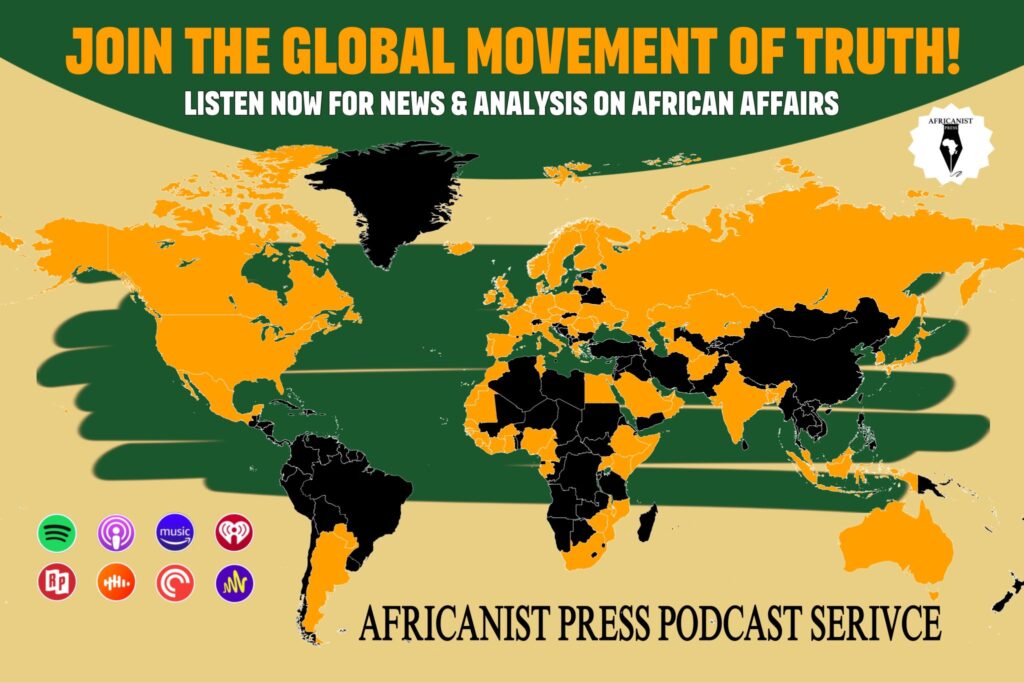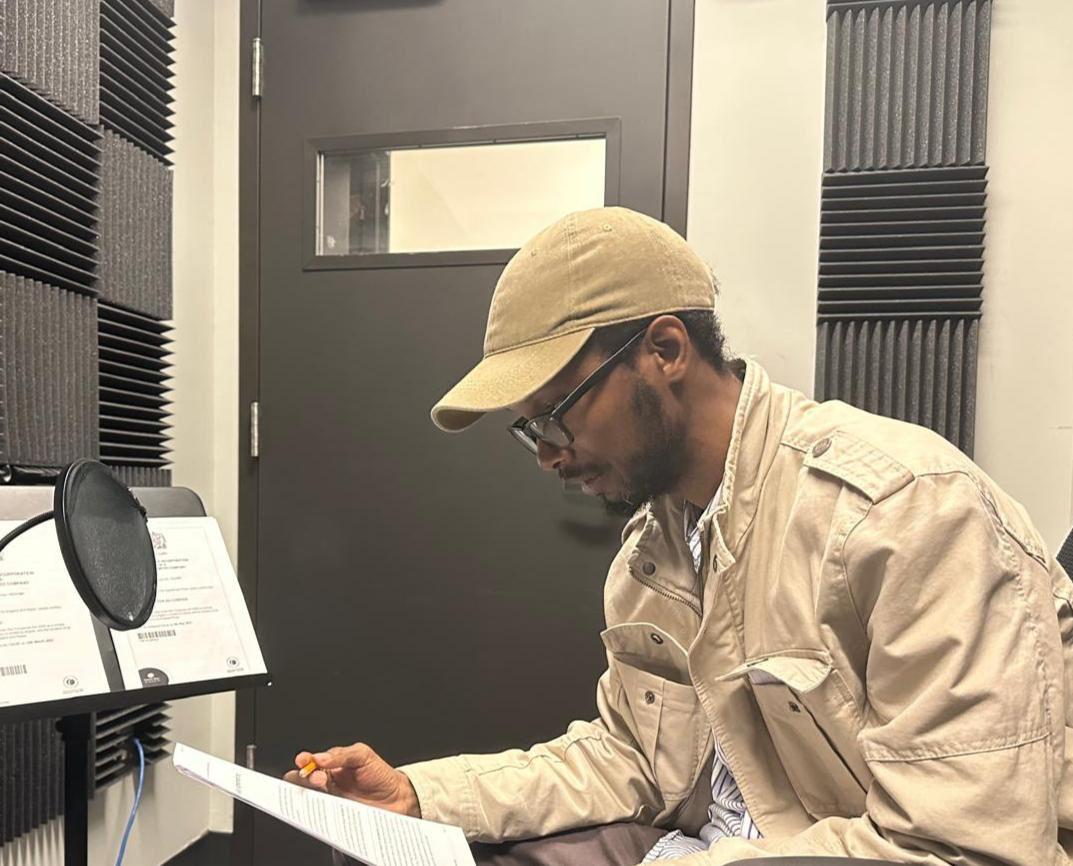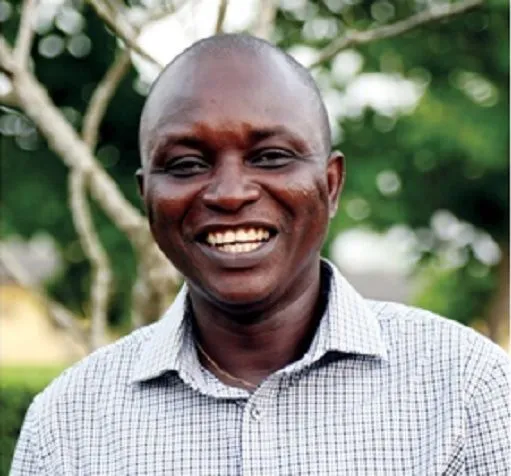By Matthew Anderson and Mark Feldman
A Committee of Concerned Scientists (CCS) in the United States has requested US Secretary of State, Antony John Blinken to use the power of the State Department to urge the government of Sierra Leone to improve its human rights record and stop the targeted harassment of historian and journalist, Dr. Chernoh Alpha M. Bah.
Founded in 1972 in the United States, CCS is an independent international organization devoted to the protection and advancement of human rights and scientific freedom of scientists, physicians, engineers, and scholars facing persecution around the world. Since the 1970s, the Committee has continuously lobbied international governments on behalf of oppressed scholars, and also provided moral and financial support to scholars facing persecution around the world, including dissident scholars in eastern Europe and China.
The Committee is currently co-chaired by five eminent scientists, including mathematical physicist Joel Lebowitz at Rutgers University, physicist Eugene Chudnovsky at Lehman College, psychiatrist Walter Reich of George Washington University’s Elliott School of International Affairs, and chemist Alexander Greer at the Brooklyn College of the City University of New York.
In July 2024, the Committee requested Secretary Blinken to intervene in Dr. Bah’s situation and “use the friendly relationship, including financial support, between Sierra Leone and the United States to obtain guarantee that Dr. Bah’s life would not be in danger if he returned to his country.”
Dr. Bah is a historian and investigative journalist specializing in West Africa’s medical history. He received his PhD in History from Northwestern University where he was a Postdoctoral Fellow in Public Service at the Chabraja Center for Historical Studies (CCHS).
A co-founder and editor-in-chief of the independent online media Africanist Press, Dr. Bah has been the target of death threats and cyber harassment for the past four years because of his public interest investigations into government corruption, including financial scandals involving Sierra Leonean President Julius Maada Bio and the country’s first lady, Fatima Maada Bio. Government officials in Sierra Leone and their allied groups launched a campaign of harassment against Bah, accusing him of treason and inciting rebellion in his homeland. Bah has been in exile in the United States ever since, and has been unable to return to Sierra Leone, despite his desire to continue his work there.
In its second letter sent recently to Secretary Blinken, the Committee reechoed its concern that harassment and death threats from Sierra Leone continue to prevent Dr. Bah from safely returning to West Africa in pursuit of his archival and oral history research.
“We are writing once again in regard to Dr. Chernoh Alpha M. Bah, a Postdoctoral Research Associate with the Africa Initiative of the Watson Institute for International and Public Affairs at Brown University, where he specializes in the history of medicine in colonial West Africa. He has also led the Africanist Press for 20 years, publishing frequently on corruption and human rights issues, including in Sierra Leone, for which he has been subjected to death threats and harassment. He is still unable to safely return to West Africa, preventing him from doing archival and oral history research,” the Committee said in a letter to Secretary Blinken.
It is unclear what action State Department officials have taken in response to the Committee’s request. However, in September 2024, the United States Millenium Challenge Corporation (MCC) announced it has signed a US$480 million compact agreement with Sierra Leone’s government to support the country’s debt-strapped economy.
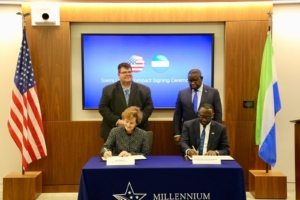
Following MCC’s announcement, Secretary Blinken said the US government is committed to supporting democracy and accountability in Sierra Leone. But the Committee of Concerned Scientists is demanding that the US government’s financial commitment to Sierra Leone must include urging the country’s leaders to respect human rights, including guaranteeing Dr. Bah’s safety and right to travel to Sierra Leone to pursue research.
“With the recent signing of a $480 million United States Millennium Challenge Corporation agreement with Sierra Leone, the US has an additional responsibility and ability to push the government there to improve its human rights record. These improvements must include allowing Dr. Bah and other scholars to return to Sierra Leone and other parts of West Africa without fear of reprisal for reporting on the government’s alleged actions, not to mention visiting family and friends,” the Committee noted, whilst urging Secretary Blinken to “use the power of the State Department to make a difference in this matter.”
CCS is not the only organization to express concern for the safety of Dr. Bah.
Few months ago, about 200 academics from universities in Europe, United States, Africa, and Asia signed an open letter of support denouncing death threats and harassment orchestrated against Bah. The academics say the attacks “constitute a clear assault on journalistic freedom [and] go to the heart of principles of academic freedom.”
The academic letter of support has been endorsed by the Network of Concerned Historians (NCH), the Royal Netherlands Historical Society, and Historians Without Borders (HWB); among the leading organizations of professional historians in Europe.
In September 2024, the American Historical Association (AHA), the largest organization of professional historians in the world, similarly sent a letter to Sierra Leone’s President Julius Maada Bio urging the “government to cease threatening Bah and protect him from harassment and violence as it would any other citizen.”
Africanist Press learned that Sierra Leonean authorities failed to respond to the AHA’s letter. The government had likewise ignored all previous statements and requests from other international organizations, including the Committee to Protect Journalists (CPJ), Reporters Without Borders (RSF), and Endangered Scholars Worldwide (ESW).
Foreign observers, including some among the humanitarian community in Freetown, believe Sierra Leonean authorities have ignored the appeals of international human rights groups because of strong political and economic ties that exist between the US and Bio’s administration.
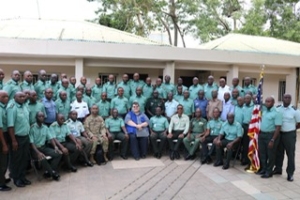
In recent years, US-financed corporations have acquired strategic control of critical infrastructure and service-related contracts in Sierra Leone’s energy, telecommunication, mining, health, and transportation sectors since Bio assumed power in 2018. Between June 2021 and July 2023, the US International Development Finance Corporation (DFC) alone approved over US$750 million in debt financing for Sierra Leone mostly for unvetted infrastructure contracts awarded to US-financed corporations registered in Turkey, Lebanon, London, and Kenya. In early May 2024, for instance, DFC announced a US$412 million loan to the US-backed company, Milele Energy and its corporate partner, TCQ Power Limited to supposedly “boost Sierra Leone’s energy sector.” DFC also provided US$150 million loan in support of a non-advertised infrastructure contract awarded to the Turkish-based Summa Group to expand and privately operate Sierra Leone’s only international airport on a 25-year concession.
Anti-corruption activists say most US financed contracts in Sierra Leone were acquired without compliance with the country’s finance and transparency laws, including the fulfillment of competitive bidding and public tender processes and procedures.
In addition to vested economic interests, others believe that existing military and security relations between US and Sierra Leone has fueled the Bio administration’s anti-democratic ambitions.
In recent years, Sierra Leone has become a critical part of US security operations in West Africa. Few weeks ago, the Michigan National Guard signed a State Partnership Program (SPP) with Sierra Leone’s Armed Forces as part of an ongoing US regional security and intelligence program in the subregion.
Deputy mission chief of the US Embassy in Freetown, Jared Yancey recently described US security partnership with Sierra Leone as “groundbreaking,” saying it is “specifically tailored to the unique environment and doctrine of the Republic of Sierra Leone Armed Forces.”
“The economic and security support that the Bio regime continues to receive from the United States has emboldened political figures to believe that they can suppress citizens and violate human rights with impunity,” a civil society activist told Africanist Press.

Amnesty International recently reported that Sierra Leone’s security forces allegedly killed and wounded protesters and bystanders when cracking down on demonstrations that erupted in Freetown, Makeni and Kamakwie in August 2022.
“Seven months after the protests which turned violent in some locations, no justice yet for those injured or the families of those killed,” Amnesty International stated.
Africanist Press editors initiated a campaign appealing to several human rights organizations asking them to impress upon US State Department officials in charge of US-Sierra Leone relations the need to protect free speech and academic freedom in Sierra Leone.
In August 2023, for instance, Dr. Bah sent a letter to the State Department underlining the US obligation to ensure its continuous economic and security engagement with Sierra Leone include the protection of human rights, including the right to free speech and academic freedom.
“The United States, as a leading partner of the government of Sierra Leone, has an obligation to ensure that its continuous engagement with the government of Sierra Leone involves safeguarding the fundamental rights of Sierra Leonean citizens, including the right to free speech and freedom of the press,” Dr. Bah noted in a letter to the State Department.

